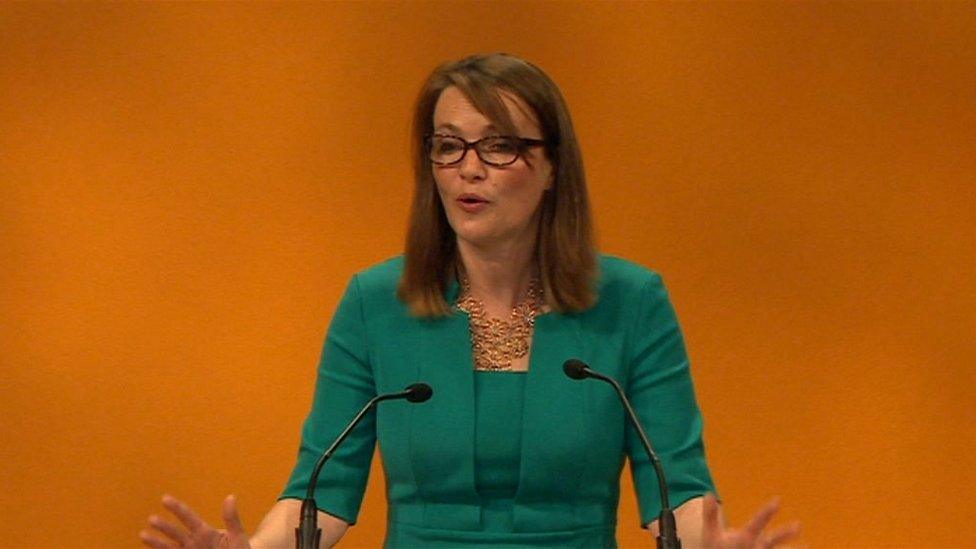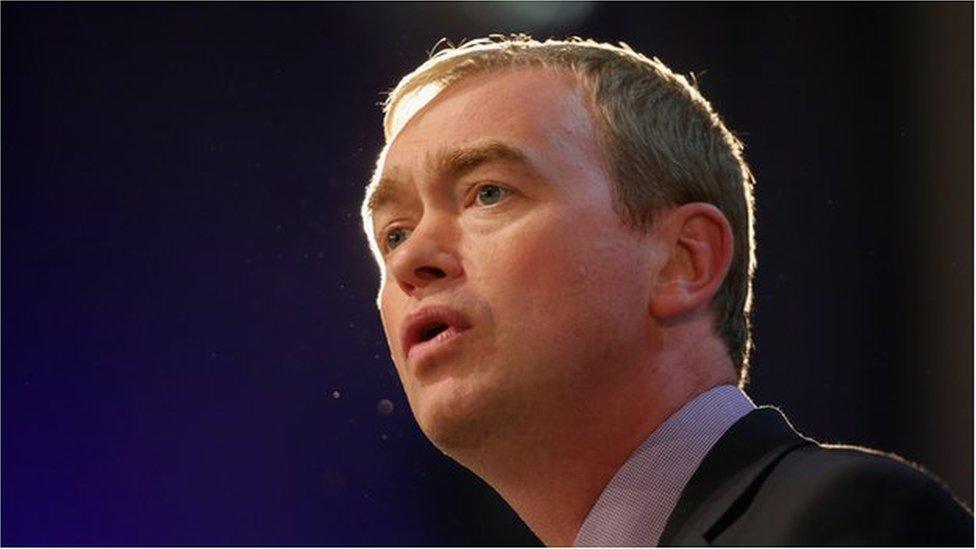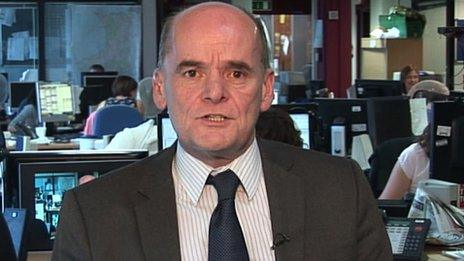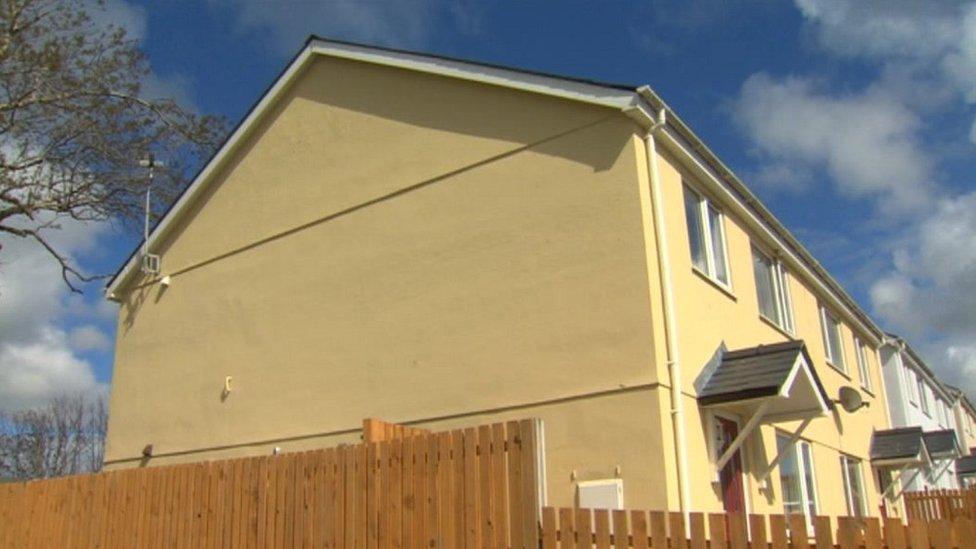Lib Dems 'relentlessly focused on public services'
- Published

Kirsty Williams speaking at the 2015 Lib Dem's autumn conference
The Welsh Liberal Democrats' leader has pledged to be "relentlessly focused on getting public services right", ahead of their spring conference in Cardiff.
Kirsty Williams said the Lib Dem vision for May's assembly election would be to "provide good schools, good hospitals and a vibrant economy".
Ms Williams will accuse Labour Welsh ministers of failing "to get even the basics right" after 17 years in power.
The conference takes place on Saturday and Sunday.
"In the forthcoming election, the Welsh Liberal Democrats will show that we have listened to people's concerns," Ms Williams said.
"Our vision for a future Welsh parliament is one that finally gives people what they want - good schools, good hospitals and a vibrant economy.
"We will be relentlessly focused on getting public services right."

Tim Farron will address the two-day conference on Saturday
The party's key pledges include:
more nurses on hospital wards
smaller infant school class sizes
building 20,000 affordable homes over five years
a 'small business administration' offering independent advice and finance
business rate flexibility for councils to boost economic development
cutting the basic rate of income tax by 1p to 19% in Wales
The Lib Dems are facing an uphill struggle in the assembly poll, after their collapse at the 2015 general election which left them with just one MP in Wales.
They currently have five assembly members.
Before Ms Williams' main speech on Saturday, party members will hear from UK Liberal Democrat leader Tim Farron.

Analysis by Vaughan Roderick, BBC Welsh affairs editor

It's almost a cliche these days to describe an election as being a "make or break" one for the Liberal Democrats, but with the party facing a possible wipe-out in May's assembly election it's clear a bad result could cause long-lasting damage.
Having seen its Westminster representation reduced to a single seat and its local government base severely eroded, the Welsh party has come to depend more on the assembly group to maintain its profile.
The last assembly election in 2011 saw a plunge in support for the party following the formation of the Conservative-Liberal Democrat coalition at Westminster.
But despite a near-collapse in its vote, the party succeeded in dodging the bullet in terms of seats, retaining seats by narrow margins in four of the assembly's five electoral regions.
The emergence of UKIP as a major electoral force in Wales will make retaining those seats far harder in 2016 and the party probably needs a substantial increase in its support just to stand still.
Quite where those extra votes might come from is anyone's guess.
- Published29 January 2016

- Published26 January 2016

- Published18 December 2015

- Published9 December 2015

- Published30 November 2015

- Published27 November 2015

- Published23 September 2015

- Published21 September 2015